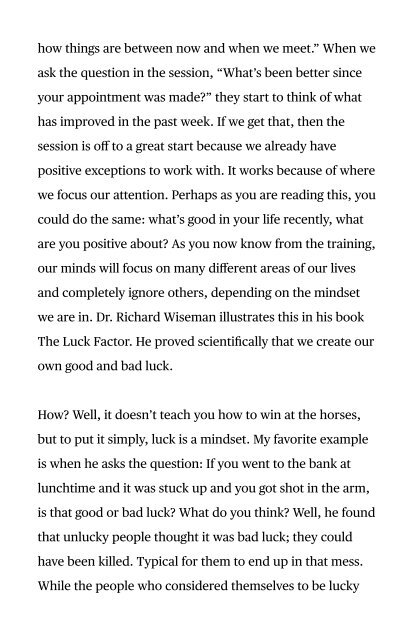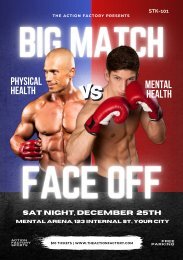The Brief Therapy Toolkit Ebook V9
Welcome to the "Brief Therapy Toolkit" eBook. This book is crafted as a concise reference guide, complementing my training course under the same title. My goal is to distill the powerful principles of solution-focused brief therapy and tailor them specifically for you, the youth worker. By deconstructing the methodology, we aim to reconstruct it in a manner that transitions seamlessly from the therapy room to your youth club, school, or children's home. As a youth worker, you are often the first point of contact in times of crisis. Armed with these tools, you will gain confidence in your approach and be better equipped to make a difference.
Welcome to the "Brief Therapy Toolkit" eBook. This book is crafted as a concise reference guide, complementing my training course under the same title. My goal is to distill the powerful principles of solution-focused brief therapy and tailor them specifically for you, the youth worker. By deconstructing the methodology, we aim to reconstruct it in a manner that transitions seamlessly from the therapy room to your youth club, school, or children's home. As a youth worker, you are often the first point of contact in times of crisis. Armed with these tools, you will gain confidence in your approach and be better equipped to make a difference.
Create successful ePaper yourself
Turn your PDF publications into a flip-book with our unique Google optimized e-Paper software.
how things are between now and when we meet.” When we<br />
ask the question in the session, “What’s been better since<br />
your appointment was made?” they start to think of what<br />
has improved in the past week. If we get that, then the<br />
session is off to a great start because we already have<br />
positive exceptions to work with. It works because of where<br />
we focus our attention. Perhaps as you are reading this, you<br />
could do the same: what’s good in your life recently, what<br />
are you positive about? As you now know from the training,<br />
our minds will focus on many different areas of our lives<br />
and completely ignore others, depending on the mindset<br />
we are in. Dr. Richard Wiseman illustrates this in his book<br />
<strong>The</strong> Luck Factor. He proved scientifically that we create our<br />
own good and bad luck.<br />
How? Well, it doesn’t teach you how to win at the horses,<br />
but to put it simply, luck is a mindset. My favorite example<br />
is when he asks the question: If you went to the bank at<br />
lunchtime and it was stuck up and you got shot in the arm,<br />
is that good or bad luck? What do you think? Well, he found<br />
that unlucky people thought it was bad luck; they could<br />
have been killed. Typical for them to end up in that mess.<br />
While the people who considered themselves to be lucky




